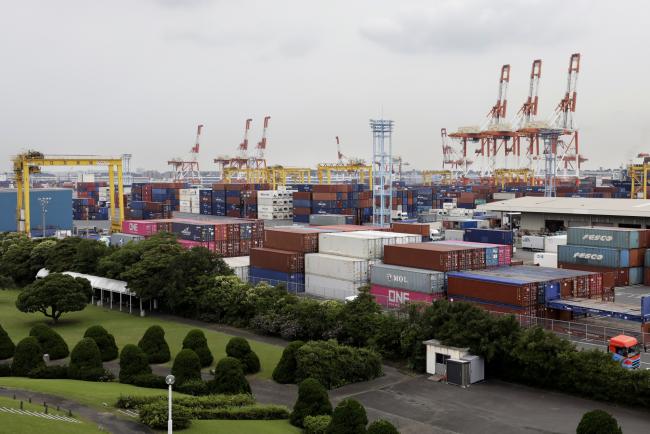(Bloomberg) -- Japan has granted the first export license to South Korea under a stricter monitoring system introduced last month, lessening fears the clampdown could halt supplies of essential materials to some of the world’s largest technology firms.
Japan had imposed more rigid checks on exports of three specialty materials used in the chip and display industries, saying there were inadequacies in its neighbor’s export controls. The move threatened to upend a global supply chain already disrupted by growing U.S.-Chinese tensions.
“As we have repeatedly explained, this is not a ban,” Chief Cabinet Secretary Yoshihide Suga told reporters in Tokyo. “I believe this shows that we are permitting legitimate trade without arbitrary management.”
Still, Suga didn’t specify the materials the license covered, making it hard for investors to parse Tokyo’s decision. Japan will continue to monitor exports to prevent the materials from being sold via third countries or used for unlicensed purposes, he added.
“Although Japan’s export permit is welcome, it’s hard to say this is the beginning of the settlement,” Lee Eun-taek, a strategist with KB Securities, said in a research note.
Tensions between two of Asia’s largest economies escalated in July when Japan slapped curbs on the export to South Korea of the trio of materials, dealing a blow to the likes of Samsung Electronics (KS:005930) Co. and SK Hynix Inc. Last week, Japan also removed its neighbor from a list of “white countries” that are seen as trusted export destinations, sparking outrage from South Koreans and ratcheting up concerns over the economic fallout.
South Korean President Moon Jae-in said Thursday he didn’t understand Japan’s intentions in introducing new regulations, which he said had worsened the situation and undermined the international community’s trust.
The export measures came amid a renewed dispute between the two countries over whether Japan has sufficiently compensated South Koreans for its 1910-1945 occupation of the Korean peninsula.
Japanese Prime Minister Shinzo Abe said this week that court rulings holding Japanese companies liable to compensate South Koreans conscripted to work in factories and mines decades ago were a violation of the 1965 treaty normalizing ties between the two countries.
